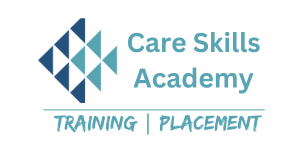In today’s fast-paced world, automobiles have become an essential part of our daily lives. From personal transportation to commercial logistics, vehicles play a crucial role. With the rapid advancements in automobile technology, the demand for skilled technicians who can diagnose, repair, and maintain these machines is higher than ever. If you’re passionate about cars or looking for a stable and rewarding career, an automobile repairing course could be the perfect opportunity for you.
Why Choose an Automobile Repairing Course?
Automobile repair is more than just a skill; it’s a blend of mechanics, electronics, and diagnostic technology. As vehicles evolve to include more sophisticated systems, from electric engines to advanced safety features, the need for trained professionals who can handle these complexities has grown significantly.
Here are some compelling reasons to consider enrolling in an automobile repairing course:
- High Demand for Skilled Technicians: With millions of vehicles on the road, breakdowns, maintenance, and upgrades are constant. Skilled automobile technicians are essential to keeping these machines running smoothly. By acquiring specialized knowledge, you open doors to a career that offers both job security and a steady income.
- Versatility and Career Opportunities: Completing an automobile repairing course doesn’t limit you to one path. You can choose to work in various sectors such as vehicle servicing, manufacturing, diagnostics, or even open your own repair business. The skills you gain can be applied to a wide range of vehicles, from motorcycles to trucks, expanding your job opportunities.
- Hands-on Learning: One of the most exciting aspects of an automobile repairing course is the practical, hands-on training you’ll receive. Unlike many academic courses, you’ll spend time working directly on vehicles, learning how to diagnose problems, repair engines, fix electrical systems, and more. This real-world experience will give you the confidence to work in the field from day one.
What to Expect from an Automobile Repairing Course
Automobile repairing courses are designed to provide a comprehensive understanding of how vehicles work, and how to fix them when they don’t. Here’s a brief overview of what a typical course might include:
- Introduction to Automotive Systems: The course will begin with a basic understanding of how cars function. This includes knowledge of internal combustion engines, transmissions, brakes, suspension, and steering systems.
- Electrical and Electronic Systems: Modern vehicles rely heavily on electrical systems for everything from engine management to infotainment. You’ll learn how to diagnose and repair issues in these systems, including the use of specialized tools and diagnostic software.
- Engine Diagnostics and Repair: Learn to identify engine problems, disassemble and rebuild components, and ensure the vehicle runs efficiently. This includes both petrol and diesel engines, along with hybrid and electric technologies in some advanced courses.
- Safety and Compliance: Safety is paramount in automobile repair. Courses typically include training in safety standards, proper use of tools, and ensuring vehicles meet regulatory compliance after repairs.
- Customer Service and Business Management: Many courses also cover aspects of managing a repair business, such as customer service, billing, and inventory management. These skills are essential if you plan to run your own garage or work independently.
Career Opportunities After the Course
After completing your automobile repairing course, the career paths available are vast. You can work as a:
- Vehicle Technician: Diagnose and repair cars in a workshop setting, working with everything from engines to electrical systems.
- Diagnostic Specialist: With advanced diagnostic tools, you’ll focus on identifying complex problems in vehicles, especially in modern, computer-controlled systems.
- Service Advisor: Use your technical knowledge to interact with customers, explaining issues and repairs in layman’s terms.
- Workshop Manager: If you have leadership skills, managing a workshop or starting your own business could be a fulfilling option.
The job market is expected to continue growing for skilled technicians, especially with the rise of electric vehicles and autonomous driving technology, creating new niches for expertise.
Conclusion
An automobile repairing course is more than just a pathway to a career—it’s a chance to be part of an industry that is constantly evolving with new technologies and challenges. Whether you’re passionate about cars or simply looking for a stable and rewarding profession, this course can provide you with the skills and knowledge to succeed in the automotive world. By investing in your education and training, you’ll be setting yourself up for a future filled with opportunity, growth, and excitement.

